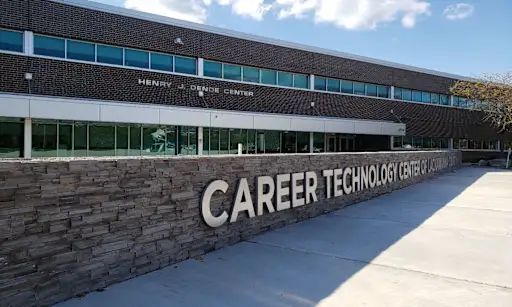Blog
Is Web Technologies A Good Career Choice?
A career in web technologies is one of the high paying and highly sought after career pathways today. With attractive salaries and the personal freedom it offers, a career in web technologies could be the right choice for you. Every industry, business, government and arguably every person depends on the web the technologies of the web. A career in web technologies offers attractive salaries, mobility, and freedom for creative and skilled workers .
With new web dependent and enabled technologies such as IoT, blockchain, AI and the continual expansion of web services, web sites, games and apps, web technologies is a diverse field that is here to stay.
Smart devices and smart phones are becoming the dominant players in connecting to the web. Anyone with a smartphone has seen how much power connecting to the web gives
them in the palm of their hands. For people who are driven and willing to
achieve industry certifications and badges
, there will always be ample career opportunities in the field.

Careers in Web Technologies
Web Technologies is an incredibly broad career topic. As a web technologist you may work with web servers, virtual web services, web app development, web game development, cyber warfare and cyber defense, AI and mor e. This is a career pathway for those who are always ready for a challenge and love to learn and apply their creativity and passion to making the world of the web work.
Here is a list of the exciting high demand careers in web technologies:
Web Developer – involves creating, connecting and making all the underlying technology of a web site or app work the way the client needs it to.
Web Technologist – brings together the virtual and physical servers, web services and connected hardware.
Web App Developer – involves writing the code and developing the app concept into a product ready for market.
Web Game Designer – takes a concept, pretty pictures, music and sound effects to bring a rock solid game to market.
Web Project Manager – keeps projects and team members on-task.
Entrepreneur – drives the vision of the startup. Most successful tech entrepreneurs are creative highly skilled technical types with an idea and the smarts to build the team of web technologists to make their idea happen.
Graphic Artist and Animator – brings apps, games and websites to life with an understanding of human nature, audience and aesthetics. The web is visual, and the better your visuals the better chance you have of gaining and keeping a customer.
There are many career paths in web technologies— other careers include web law, marketing, sales, administration, blockchain, and more .
Before we discuss the pros and cons of a career in web technologies, let’s talk about the history of web technologies.
A Brief History of Modern Web Technologies

Everything has to start somewhere, and this field is no exception. Ever since time began man has tried to find ways to share information and ideas. First came language, then pictures on walls in caves, and later on shapes pressed into clay tablets. But it was when the printing press came along that information transfer exploded. The next time humans would experience such a knowledge transfer explosion is when the first web technology, the internet, was born.
The first real start to what we know of as the web was with the first website created by Tim Berners-Lee on a NeXT computer at CERN in 1989 using a language he developed that would later be called HTML. The first site wasn’t much, however what it started changed the world forever.
Later, Berners-Lee introduced the world to the concept of the World Wide Web. In 1993, as the UN and the White House went online, the National Science Foundation (NSF) led an effort to create a new internet architecture that could support what was expected to be big commercial use growth. In 1993 there were approximately 600 websites on the web, and as of 2020 that number has exploded to 1.7 billion. This means there is a website for every 4 people alive today—an incredible figure.
We think that the
Apple iPhone released in 2006
is the first smartphone (it was not) and therefore the first pocket device to connect to the internet (it wasn’t), but actually it was in 1994 when a program called PocketWeb was released for the Apple Newton. Today, there are 3.5 billion smartphone users worldwide. This means that nearly half of all people alive today are using a smartphone. 
When you hear about devices that makes up the Internet of Things (IoT) such as video camera doorbells and smart speakers, you typically assume that this all happened in just the last few years, but actually the first internet-enabled device was a Coca-Cola machine that was connected to what we think of now as the internet in 1982 and could report how many frosty cold Cokes were left inside.
In 1994 the first game installed on a mobile phone was Tetris. Today, there are over 2.2 billion mobile gamers, with over 600,000 games available on the App Store and Play Store.
Let’s look at the pros and cons of a career in web technologies.
The Pros of A Career in Web Technologies
- The global web industry is vast, and the career options are boundless
- It is a lucrative career field with opportunities to be an employee, entrepreneur or freelancer
- It is a creative career, especially if you are creating apps, games and sites
- It pushes you to always be learning, improving and gaining new skills
- You do not need a 4 year degree, but need additional education, portfolio and certifications to break into this career path
The Cons of Pursuing A Career in Web Technologies
- It isn’t for everyone. You have to be ready to always learn and hone your skills and knowledge. You must like to learn new things.
- You have to be willing to get skilled, build a portfolio and take the time to get industry credentials.
For most tech savvy creative types, the pros outweigh the cons. You can expect to make an average of $72,520 per year average salary . The higher end salaries for web technology managers average $142,530 per year .
The Technical Skills Needed For A Career In Web Technologies
If you love technology and are a creative problem solver, you may possess the characteristics needed to succeed in the dynamic world of web technologies. However, in addition to your passion for the web, you will also need the technical know-how to actually put your creative mindset to use.
We offer a course on Web Technologies that is a perfect platform to launch yourself into this exciting career journey.
In addition to understanding the basics of how the web works, you will also want to add project examples to your portfolio covering the following:
- Website development
- Web app development
- Mobile app development
- Web game development
- Marketing app development
- Voice controlled app development
- Virtual reality/360 app development
- Interactive story development
- Web server and storage implementation
Your portfolio and international industry recognized certifications are the tools you use to tell the story of your talent, passion and capacity to be the type of professional that companies want to work with.
Is A Career In Web Technologies Right For You?
Bringing sites, apps games and new cutting-edge technology to life on or connected to the web is one of the most exciting careers you can imagine. However, this work demands creative problem solvers and life-long learners. A web technologist, in whatever capacity they find themselves in, will need to work hard, meet deadlines, always act ethically and be able to be a leader of integrity. The reward for being a web technologist is being a part of a high-demand and high-paying field that is rapidly growing and will be an exciting career path for years to come.
Bring your passion, skills and dedication, and you will succeed in the web.
Content by – Joshua Frisch / Steve Waddell
The post Is Web Technologies A Good Career Choice? appeared first on CTeLearning.
Share To
Get in touch with us today!
You can book a demo directly using Calendly, call us directly at 913-764-4272 or 877-828-1216, or submit the form and we will reach out to you.
We look forward to helping you and your students.

Most Recent Posts





